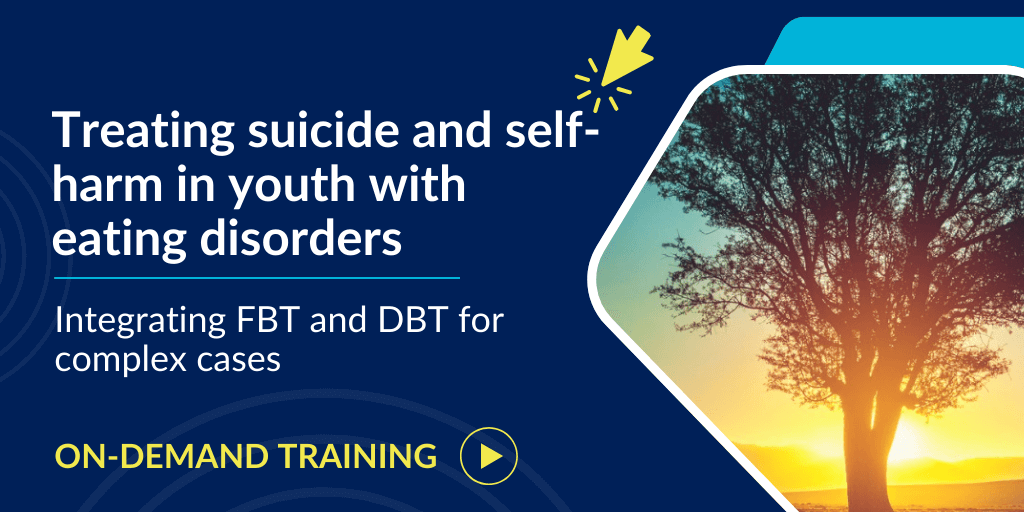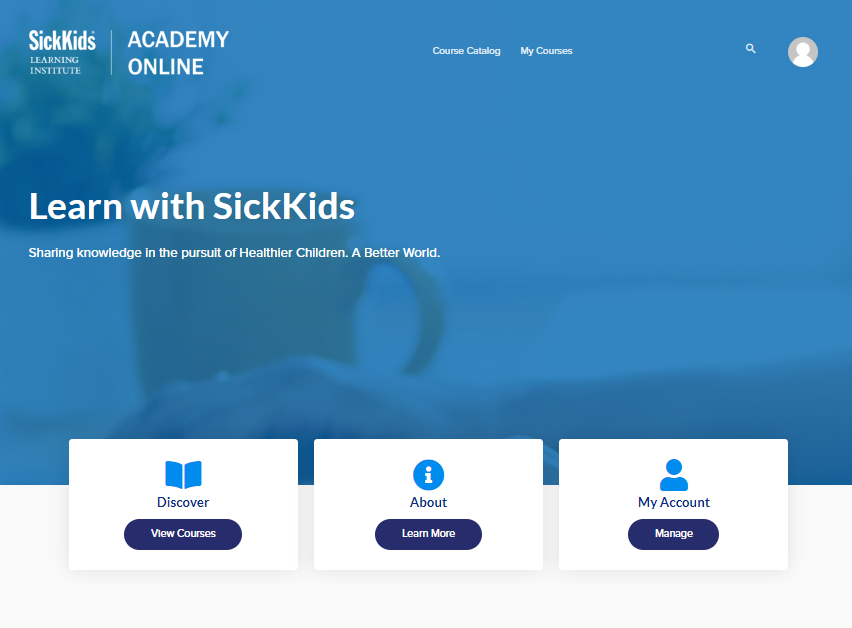Treating suicide and self-harm in youth with eating disorders

Enhance your clinical toolkit with integrated FBT and DBT strategies to address suicide, self-harm, and complex emotion regulation challenges in youth with eating disorders.
Stay tuned – Registration is opening soon!
This training is suitable for:
- Mental Health Professionals: psychotherapists, counsellors, psychologists, social workers
- Medical Professionals: nurses, psychiatrists, pediatricians, family doctors
- Direct Service Workers: drop-in workers, shelter and hostel workers, child and youth workers, youth justice workers
Client category: Professionals working with individuals 12 years to adulthood.
CE hours: 6
Treating suicide and self-harm in youth with eating disorders: Overview
Eating disorders (EDs) are complex biological and psychiatric illnesses associated with significant morbidity and mortality. While FBT is considered a first-line treatment, more than 50% of patients do not respond adequately. Relapse rates also remain high. Research highlights the need for differential treatment approaches for individuals presenting with co-occurring suicide, self-injury, trauma, and specific bio-temperamental characteristics. Standard ED treatments did not design protocols to treat multiple high-risk behaviours.They do not have protocols for managing chronic suicide or self-injury. They also do not comprehensively target emotion regulation problems. Dialectical Behaviour Therapy (DBT) is a comprehensive and multi-modal framework for managing emotion and interpersonal regulation difficulties. Integrating DBT and FBT provides a solid framework to help families and adolescents who struggle with multiple problem behaviours in the context of an eating disorder.
Training description:
This introductory training will provide a brief overview of the scientific evidence of FBT and DBT and the rationale for integrating these two models for adolescents with anorexia nervosa experiencing other comorbid diagnosis. The training will give special attention to parents of children struggling with suicide ideation and self-harm behaviours.
Learning objectives:
- Understand the fundamental principles, interventions and distinct phases of FBT.
- Describe the rationale for integrating DBT and FBT.
- Use the adapted Biosocial Theory with clients.
- Demonstrate dialectical strategies and DBT treatment assumptions.
- Use DBT commitment strategies to manage food and weight challenges.
- Teach families how to use behaviour chain analysis.
- Explain when and how to integrate multifamily skills into FBT.
Register today to strengthen your practice and gain practical tools for supporting adolescents and families navigating eating disorders with co-occurring suicide and self-harm concerns.
Upon registration participants will receive a confirmation email that includes access information to our on-demand training platform, SickKids Academy Online. Participants will have access for 90 days from the date they begin the course on SickKids Academy Online. Following the training, participants are required to complete a quiz to receive the Certificate of Participation.

This program was originally recorded on December 9, 2024.



